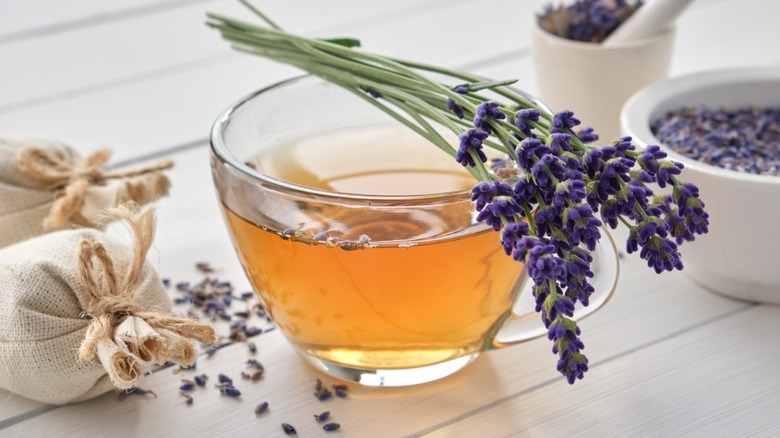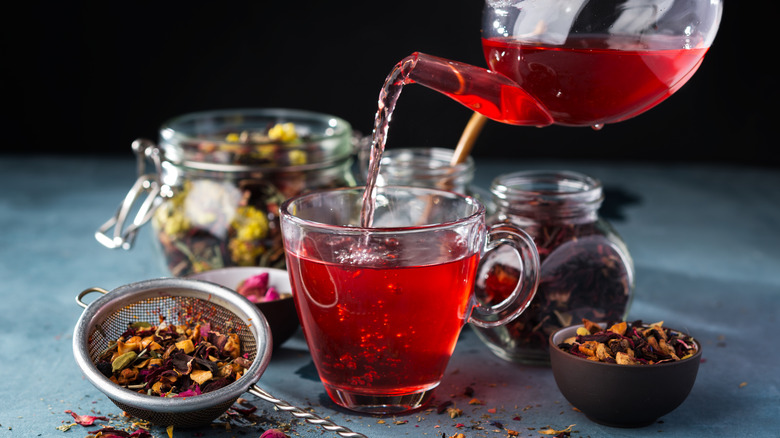The Reason Herbal Tea Isn't Really Tea
Tea is one of the most consumed beverages in the world, and it's been around for a long time. Statista reports that it is the second most popular drink internationally, only behind the ever-necessary water. In fact, the drink is so widespread that The New York Times states that there are more than 3,000 different types of tea in the world in a wide range of flavors, presenting a whole host of options for what to sip on when you're hankering for a hot drink. With all the available variety, everyone can find their perfect cup of tea.
There also are many noted health benefits connected to the beverage, with a recent study showing that drinking tea or coffee can lower your risk of having a stroke or developing dementia (via Today). While most of us are drinking our teas black, sometimes you want a hot cup of something soothing without any of the caffeine that comes with traditional black, Earl Grey, and other blends. If that's the case for you, then herbal tea is your best friend. Herbal teas come in hundreds of different flavors, from fruity and sweet to more earthy and savory. However, you might be surprised to learn that herbal teas aren't really teas at all.
Herbal teas are actually tisanes
Tea, as it turns out, actually refers to leaves from just a single plant: the Camellia Sinensis plant, an evergreen shrub originally grown throughout Asia. A lot of the many types of tea out there come from this plant, with the different processes of handling the leaves creating the various tastes.
But for herbal teas, there's one major factor that separates them from the rest. Herbal teas are actually tisanes, meaning that they are drinks created from "infusions made from leaves, bark, roots, berries, seeds, and spices. Common tisanes include mint, chamomile, verbena, and rooibos," (via The Kitchn). Unlike most regular teas, tisanes are not made from the leaves of the Camellia Sinensis plant.
Along with that, teas and tisanes differ in caffeine content. While all teas contain caffeine, herbal teas, or tisanes, are actually caffeine-free, which makes them a great candidate for that late-night cuppa. They also take a lot longer to steep, with a tisane taking 4-15 minutes compared to a regular tea's 2-3 minutes. Despite the many differences, tisanes will likely continue to be grouped together with all of the other teas as a favorite drink for the masses.

